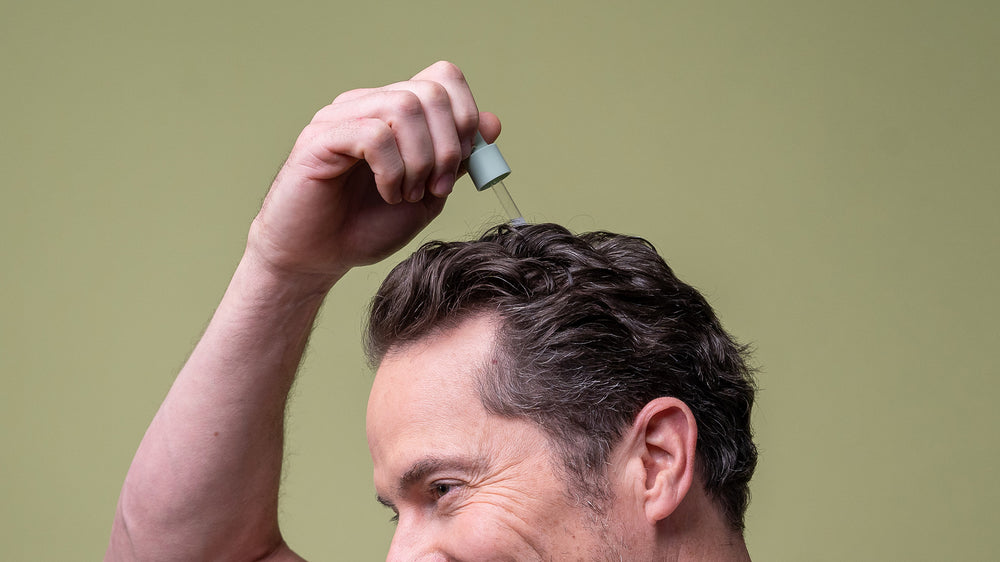The human scalp is already a sensitive part of the body, so if you have a particularly sensitive scalp, you might be worried about the cause.
Thankfully, the team here at Divi can help you figure out what causes a sensitive scalp and which methods can treat your specific condition – such as Divi’s Scalp Serum.
What Are the Main Causes of a Sensitive Scalp?
There are, unfortunately, many reasons for scalp sensitivity, most of which are related to skin conditions. Below we have listed some common skin conditions that lead to scalp tenderness and explain their causes.
Traction Alopecia
Traction alopecia is a hair loss condition where hair is pulled repeatedly. It most commonly affects women who keep their hair in tight buns, ponytails or braids and is more likely to occur if heat and chemicals are used regularly on the hair. Hair dryers and relaxers can often contribute to the condition by making hair brittle.

Surprisingly, this condition can be reversed relatively easily by changing to looser hairstyles; however, long-term use of tight hairstyles may prevent the regrowth of hair follicles.
Besides hair loss, traction alopecia can cause other symptoms, such as itching, inflamed scalp, scaling, pain and blisters.
Scalp Psoriasis
Psoriasis is an autoimmune disease affecting the skin. It causes itchy, scaly patches to form on the scalp due to a build-up of skin cells.

These scaly patches of skin can cause intense itching, which leads to scratching. When you scratch these patches repeatedly, you can cause hair loss and bleeding due to damaging the skin and hair follicles.
While scalp psoriasis is a condition many people will face for the rest of their lives, it usually only flares up when people with it experience high levels of stress, become sick with another illness, or there is a bout of hot and humid weather.
Seborrheic Dermatitis
Seborrheic dermatitis is a type of eczema and one of the most common skin conditions people face. While seborrheic dermatitis can occur almost anywhere on the body, it most commonly occurs on the scalp.
Seborrheic dermatitis on the scalp shows as dandruff, inflamed scalp, and scaly patches of skin, which can cause scalp pain and sensitivity. While doctors are unsure of the exact cause of seborrheic dermatitis, there seem to be two factors causing the condition.
The overproduction of oil contributes to seborrheic dermatitis, as an abundance of oil on the skin can irritate and cause it to become greasy and red.
The other factor causing seborrheic dermatitis is when a type of yeast called Malassezia globosa, generally found on the skin, multiplies quicker than usual. This overproduction of yeast also causes the skin to produce too much oil, which can lead to seborrheic dermatitis.
Folliculitis
Folliculitis is another common skin condition known to affect the scalp and cause some scalp sensitivity. It is typically caused by bacterial or fungal infection and presents a rash of raised bumps causing itchiness, scalp pain, and sensitivity.
Folliculitis is transferable from person to person. You can contract some forms of the condition through human contact or by using items used by someone with the condition already.
Folliculitis can occur anywhere on the body with hair but is most likely to appear on the scalp, which generally has the most hair.
Allergic Contact Dermatitis
Allergic contact dermatitis arises when the skin has an allergic reaction after being exposed to a toxic chemical or foreign substance. If such exposure occurs on the head, it could cause a tender scalp.
Some of the substances capable of causing allergic contact dermatitis include:
- Gold or nickel jewelry
- Chemicals in hair care products and other cosmetics
- Poison oak, poison ivy and other toxic plants
- Latex
Other Causes of Scalp Tenderness
Some of the other conditions that can cause scalp soreness and sensitivity are:
- Atopic dermatitis
- Temporal arteritis
- Sunburn
- Lichen planus
- Hormones
What Are the Symptoms of a Sensitive Scalp?
A sensitive or sore scalp can often be accompanied by other symptoms, depending on the condition causing the scalp irritation.
A sensitive scalp is characterized by the scalp feeling sore to the touch. Some of the most common symptoms accompanying a sensitive scalp are:
- A burning sensation on the scalp
- A dry scalp
- Hair loss (specific to certain conditions)
- Scabs or sores
What Foods Cause Scalp Inflammation?
Scalp sensitivity can result from various foods causing an inflammatory response in the body. If you consume these items regularly and in large quantities, they could be part of the reason you struggle with a sensitive scalp.
Some of the foods and drinks able to cause scalp inflammation are:
- Excessive alcohol consumption
- Vegetable oils
- Processed meat
- Foods high in sugar or foods containing high fructose corn syrup
- Artificial trans fats
- Refined carbohydrates
While these foods and drinks may not directly cause scalp sensitivity, they can certainly increase the possibility.
Can Hair Loss Cause Scalp Sensitivity?
Hair loss alone will not cause scalp sensitivity, but if the hair loss results from certain health conditions, these conditions can cause both scalp sensitivity and hair loss.
Male-pattern baldness is the most common type of hair loss for men and will generally not result in a sensitive scalp. It can be easy to tell whether your hair loss results from male-pattern baldness, as your hair will begin to thin at either the temples or crown of the head.
What Autoimmune Diseases Cause Scalp Pain?
There are quite a few autoimmune disorders capable of causing sensitive scalp and hair loss, some mentioned above and other less common ones.
Listed below are some of the autoimmune diseases that can cause scalp pain:
- Temporal arteritis
- Scalp psoriasis
- Alopecia areata
Does Your Scalp Get More Sensitive As You Age?
The scalp gets more sensitive as we age, but age alone is not always the root cause. The consistent use of harmful hair products over the years can cause your scalp to be more sensitive than it would be otherwise.
How to Avoid Scalp Tenderness?
The best ways to avoid scalp tenderness include:
- Regularly washing your hair and scalp with warm (not hot) water
- Using hair products not containing fragrances or any other irritants
- Using products, like Divi, that hydrate, clean and soothe the scalp
- Wearing loose hairstyles
- Drying your hair and scalp with a towel or a hairdryer using cool air
- Living a healthy lifestyle and eating a balanced diet
- Gently brush and comb your hair
- Avoid using products such as hair dyes and hair relaxers
What Treatments Can You Use for a Sensitive Scalp?
The treatments you can use for a sensitive scalp vary depending on the condition. Below we will list some conditions and the best ways to treat them. Keep in mind, one of the simplest ways to treat many ongoing scalp conditions is by developing a healthy scalp routine. By using Divi products that contain science-backed ingredients with antifungal, antibacterial, anti inflammatory and moisturizing properties—you can help alleviate many of the symptoms of an irritated scalp.
Traction Alopecia
Traction alopecia is caused when the hair is pulled too tight against the scalp. Wearing your hair down or in loosely pulled-back styles can easily prevent hair loss.
Once you have stopped using tightly pulled-back hairstyles, your scalp should begin to heal. If you do not see improvement in your hair after making changes, you should consult a physician.
Scalp Psoriasis
If you suffer from scalp psoriasis, you should consider seeing a doctor. A physician should be able to prescribe medication to help your condition.
Some treatments might include steroid ointment, a steroid injection, a Vitamin D derivative like calcipotriene, anthralin, retinoids, salicylates, or a coal tar shampoo.
Seborrheic Dermatitis
Seborrheic dermatitis on the scalp is typically treated with antifungal cream, anti-itch cream and hypoallergenic soap, as well as rinsing your hair thoroughly when showering.
Unfortunately, there is no surefire way to treat the condition, as it will likely persist throughout life. However, you can manage it by developing a good scalp care routine and learning to avoid triggers of your seborrheic dermatitis.
When Should You See a Doctor About a Sensitive Scalp?
You should generally see a physician if the symptoms of your sensitive scalp worsen or aren't subsiding after treatment.
Divi Promotes Scalp Health
If you seem to regularly suffer from a sensitive scalp, then consider using Divi’s Scalp Serum, Shampoo or Conditioner. We use clean ingredients and effective amino acids in our products to promote the general health of your scalp and hair.






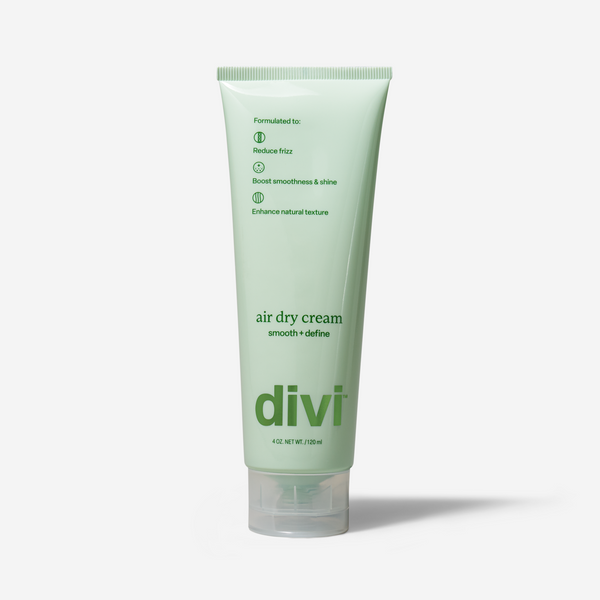
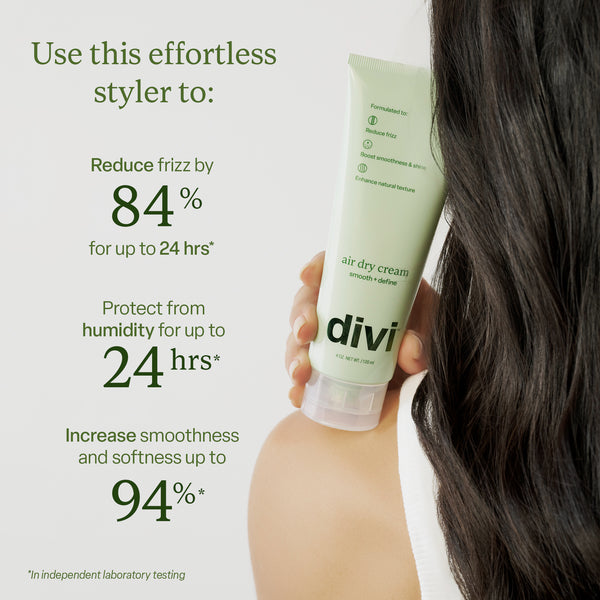

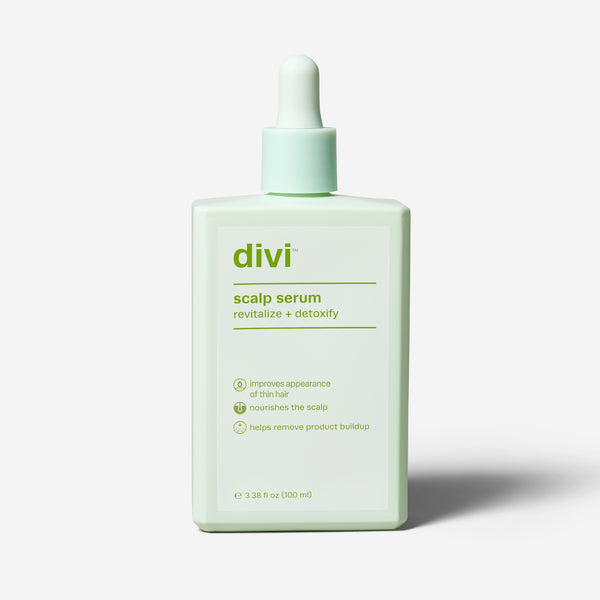

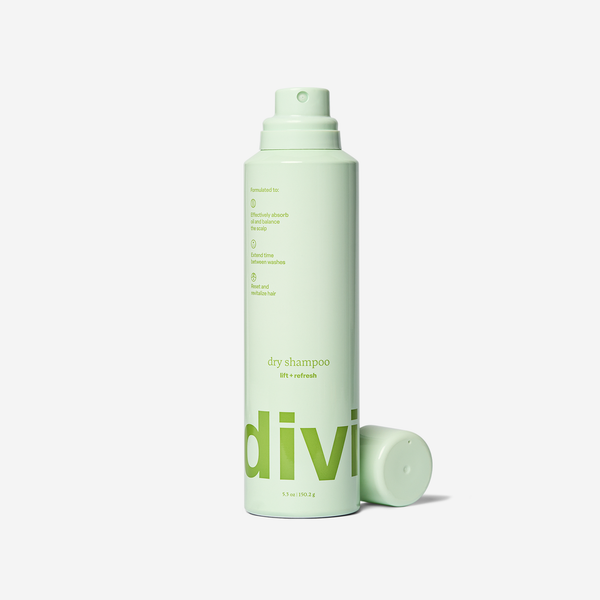

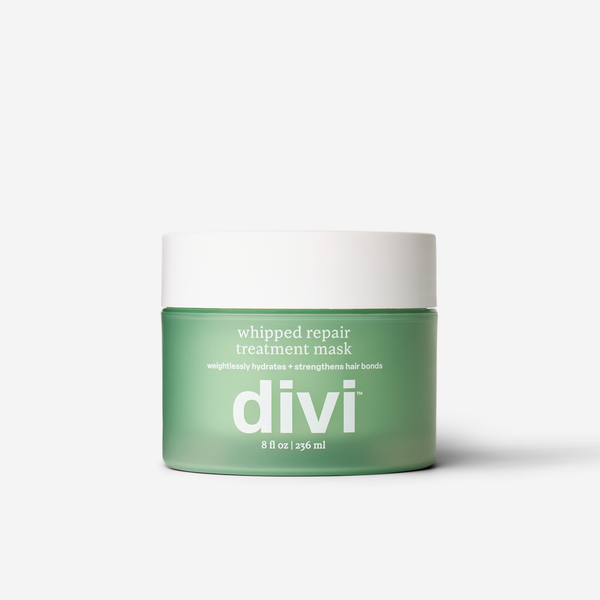
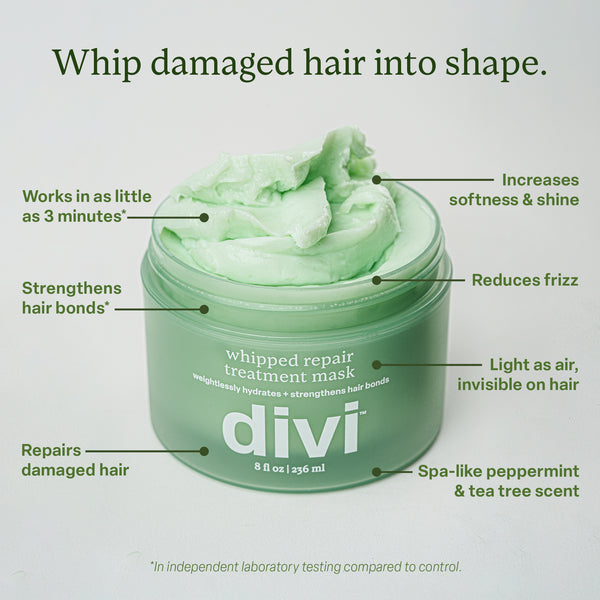
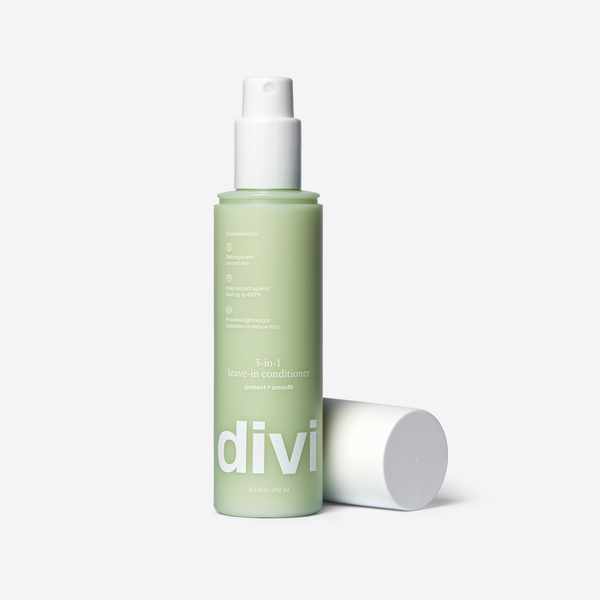


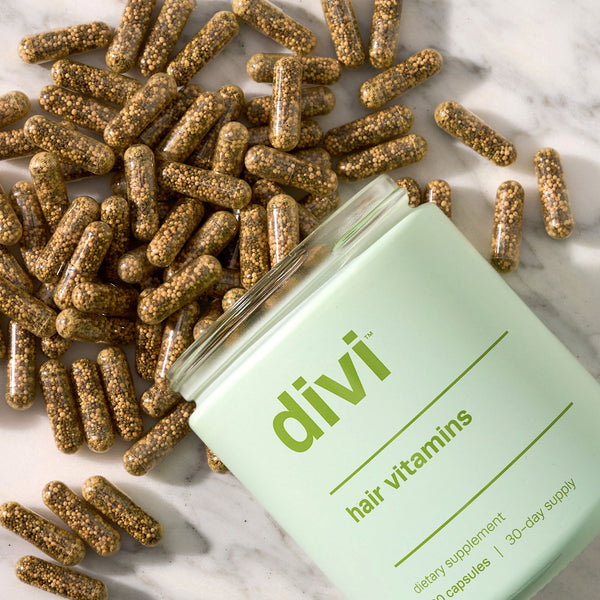
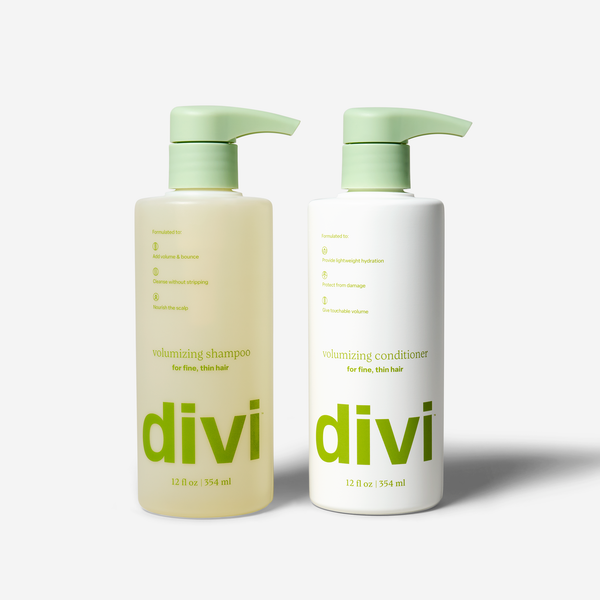





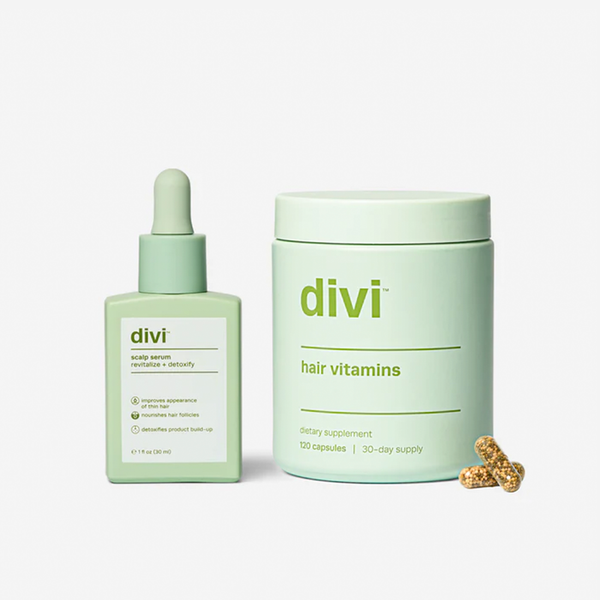
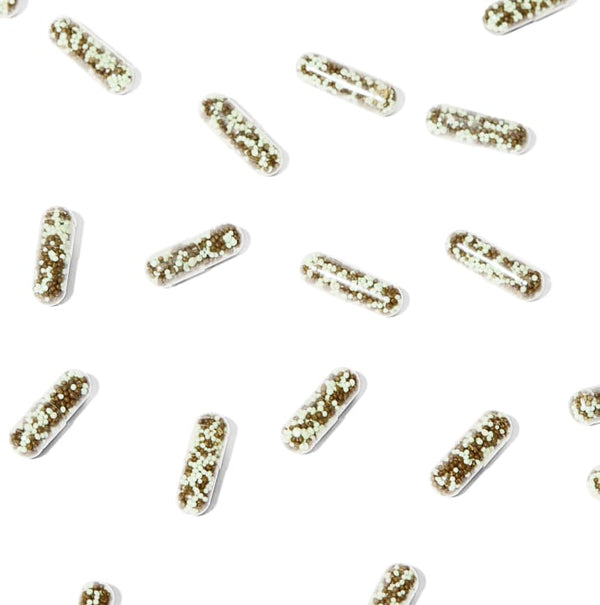
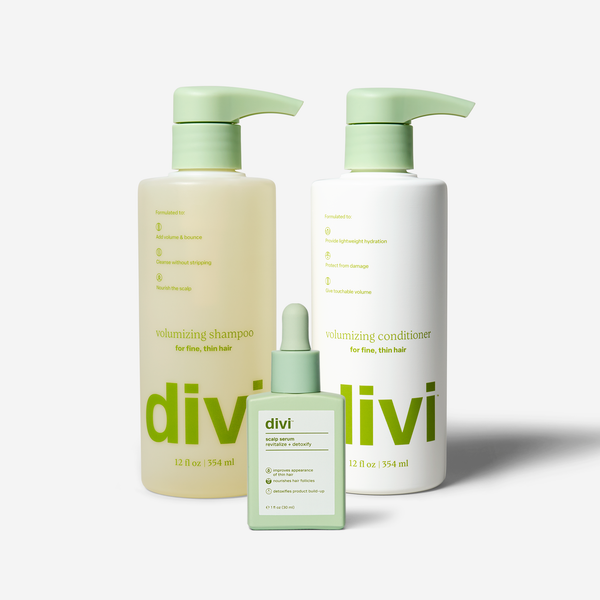












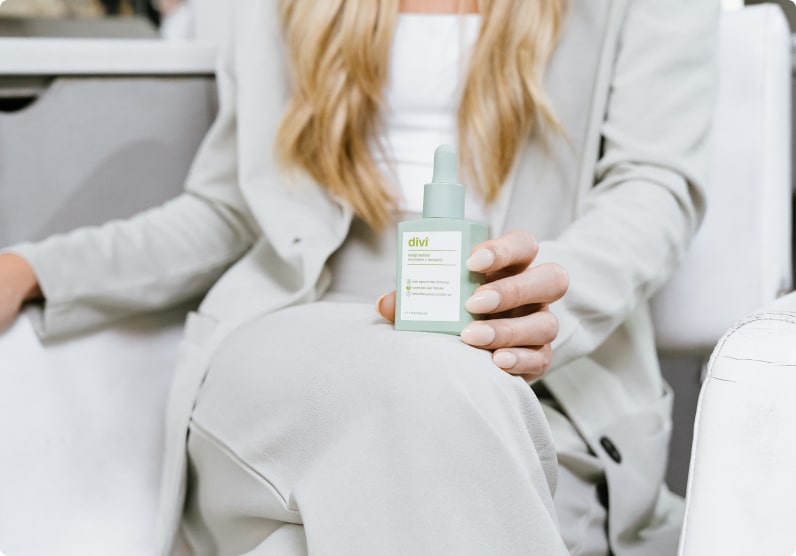






 30ml Scalp Serum
30ml Scalp Serum
 100ml Scalp Serum
100ml Scalp Serum
 Volumizing Shampoo
Volumizing Shampoo
 Hydrating Shampoo
Hydrating Shampoo
 Travel-Sized Volumizing Shampoo
Travel-Sized Volumizing Shampoo
 Travel-Sized Hydrating Shampoo
Travel-Sized Hydrating Shampoo
 Volumizing Conditioner
Volumizing Conditioner
 Hydrating Conditioner
Hydrating Conditioner
 Travel-Sized Volumizing Conditioner
Travel-Sized Volumizing Conditioner
 Travel-Sized Hydrating Conditioner
Travel-Sized Hydrating Conditioner
 3-in-1 Leave-In Conditioner
3-in-1 Leave-In Conditioner
 Best Sellers Bundle
Best Sellers Bundle
 Volumizing Starter Bundle
Volumizing Starter Bundle
 Hydrating Starter Bundle
Hydrating Starter Bundle
 The Healthy Hair Bundle
The Healthy Hair Bundle
 Hair Vitamins Trio
Hair Vitamins Trio
 Dry Shampoo
Dry Shampoo
 Hair Vitamins
Hair Vitamins
 Volumizing Shampoo & Conditioner
Volumizing Shampoo & Conditioner
 Travel-Sized Volume Duo
Travel-Sized Volume Duo
 Hydrating Shampoo & Conditioner
Hydrating Shampoo & Conditioner
 Travel-Sized Hydrating Duo
Travel-Sized Hydrating Duo
 Travel-Sized Dry Shampoo
Travel-Sized Dry Shampoo
 Travel-Sized Dry Shampoo Trio
Travel-Sized Dry Shampoo Trio
